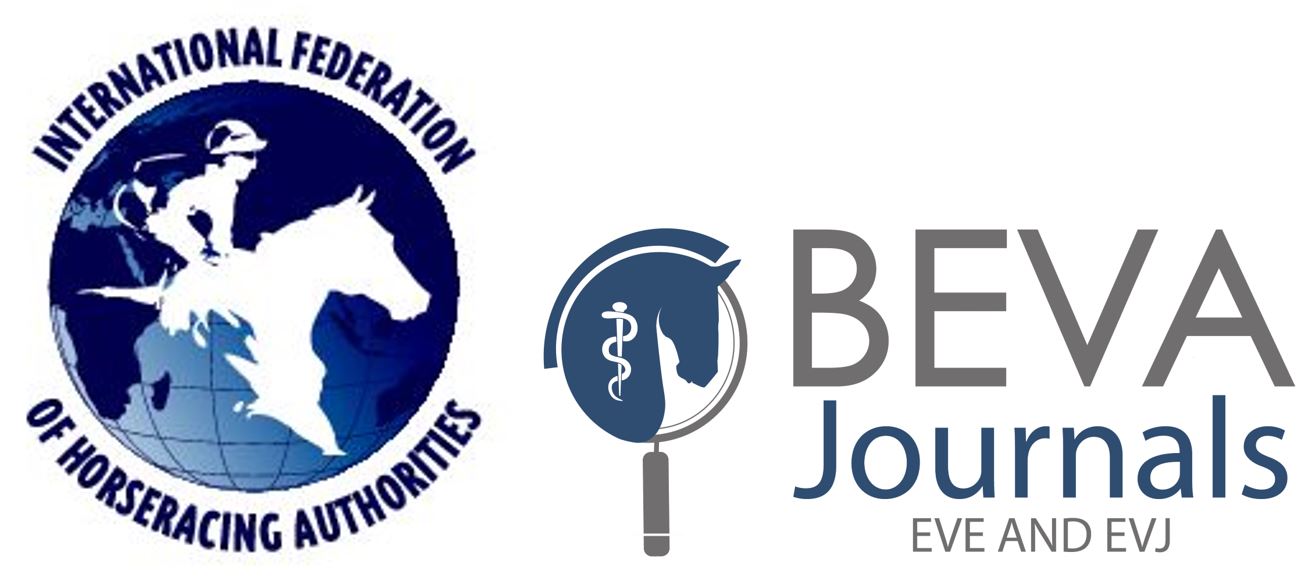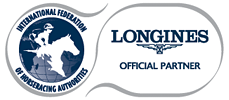 The safety of racehorses is paramount, whether on or off the track, and it forms the basis of the Equine Veterinary Journal’s (EVJ) new special collection on racehorse safety, sponsored by the International Federation of Horseracing Authorities (IFHA). The virtual collection provides free access to science-based and data-driven research presented at last year’s IFHA summit, aimed at improving the welfare of racehorses globally.
The safety of racehorses is paramount, whether on or off the track, and it forms the basis of the Equine Veterinary Journal’s (EVJ) new special collection on racehorse safety, sponsored by the International Federation of Horseracing Authorities (IFHA). The virtual collection provides free access to science-based and data-driven research presented at last year’s IFHA summit, aimed at improving the welfare of racehorses globally.
A free podcast sits alongside the virtual issue, with compelling discussion between Jamie Stier (chair of IFHA horse welfare committee), Chris Riggs (Director of the Hong Kong Jockey Club Equine Welfare Research Foundation and fracture workshop organiser of the IFHA Summit) and Celia Marr (editor of the EVJ and EASD workshop organiser of the IFHA Summit).
The IFHA Global Summit on Equine Safety & Technology held in Toronto in June 2024 brought together world-leading research scientists, clinicians, veterinarians, and racing regulators from around the globe to discuss how science and technology could best be used to help minimise the risk of fractures and exercise-associated sudden death in racehorses.
The EVJ’s special collection, guest edited by Chris Riggs and edited by Celia Marr, contains four editorials based on the summit, together with 22 diverse and important papers from world-leading researchers on how science and technology could be best used to help minimise the risk of fractures and exercise associated sudden death (EASD) in racehorses.
The introductory section sets the scene by identifying racing’s concerns and what it expects from science, what veterinary scientists want from racing and the risk factors for fatality in jump racing.
Exercise-associated sudden death (defined as: ‘a fatal collapse in a closely monitored and previously presumed clinically healthy horse that occurs during exercise or within approximately one hour after exercise’) accounts for 10%–25% of racecourse deaths.
Understanding exercise-associated sudden death includes six papers incorporating the risk factors, the latest work on reducing the risk, post mortem findings, the heritability of sudden cardiac death, the morphological characteristics of the myocardial sleeves in the vena cava and the validation of an equine fitness tracker.
Severe fractures are the cause of most other racecourse fatalities. Although the incidence of these injuries is relatively low, the impact on the welfare of individual animals and humans is profound. With most fractures in the racehorse occurring as an acute manifestation of a chronic repetitive overuse injury, there is significant potential for timely intervention and prevention.
Predicting and preventing catastrophic fracture comprises 17 papers comprehensively examining how current research can be advanced and translated into action. The section covers the development of realistic screening programmes to identify high-risk horses, including training practices, exercise history and diagnostic risk evaluation, ultimately to help predict and prevent catastrophic fractures.
“It is critical for racing that future research, and scientific and technological developments, translate into real benefits in equine safety,” said Celia Marr. “This substantial special collection provides easy access to the latest international research; by understanding identifiable risks, we can help to mitigate them, advance welfare and enhance public perception of the sport to secure a safer future for racing.”
The EVJ special collection on racehorse safety can be found here. The podcast can be downloaded here https://evj.podbean.com
Equine Veterinary Journal (EVJ) https://beva.onlinelibrary.wiley.com/journal/20423306 is owned by the British Equine Veterinary Association http://www.beva.org.uk/home. EVJ is an unrivalled international equine veterinary science journal which strives to publish clinically orientated research. It was first published in 1968 and now appears bi-monthly.
Further information from: Bright Bay, telephone 01986 784562 or 07768 958911, email: sarah@brightbayconsulting.co.uk
About IFHA
The IFHA is a federation of more than 60 racing authorities from different countries and regions in the world. It is the global leader for the international sport of Thoroughbred racing, seeking to promote all facets of the worldwide sport; protect the welfare of the equine and human athlete; and protect and grow its global social and economic significance for current and future generations.
Major areas of the IFHA’s activities include:
- Making and amending the International Agreement on Breeding, Racing and Wagering
- Policy development relating to welfare and safety of horses and riders
- International race planning and grading (“black type”)
- World rankings
- The fight against equine prohibited substances and practices
- Harmonisation of racing rules
- Certification of IFHA reference laboratories
- Fostering commercial development of the racing industry globally
The IFHA is a foundation member with Fédération Equestre Internationale (FEI) of the International Horse Sports Confederation and is affiliated to the World Organisation for Animal Health (WOAH).
|




